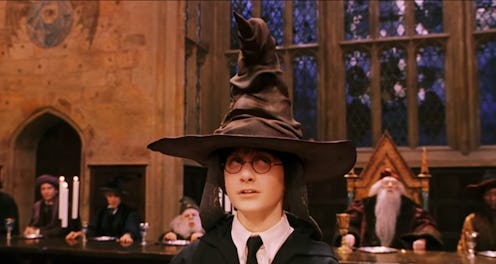
It turns out J.K. Rowling was onto something when she introduced readers to the famous Sorting Hat, responsible for sorting students into Hogwarts Houses. A study at Yale University has created a Harry Potter -like sorting hat that scans brains and predicts behavior, an MRI scan that can tell the uniqueness of a person's brain from a large crowd with 99 percent accuracy. Traditionally, MRI scans have not been nearly as individualistic, and have required using large groups of people to identify what parts of the brain are responsible for certain markers of intelligence or skill. But Emily Finn of Yale University uncovered a way to make brain scans far more personal, and published their findings in Nature Neuroscience.
The study took a total of 126 participants, and monitored their brain activity through everyday tasks for two straight days. Researchers found that of all the networks in the brain, the medial frontal network and the frontoparietal network were the most unique to the person — hence, providing a "fingerprint". These networks are significant in that they are strongly associated with fluid intelligence, logic, cognitive control, emotions, and memory. Basically, they all the things that make you unique — and all the things an actual Sorting Hat would peer into if it were deciding where to put you at Hogwarts.
What makes this extra ~magical~ though isn't just that the MRI technology can use this research to identify people's individual brains with such insane accuracy, but that the results might be able to predict things like intelligence, academic performance, workplace performance, and more. TL;DR — this tech can sort you so accurately that it makes the Pottermore quiz look like a preschooler's doodling.
Of course, there is some controversy about how this type of research might be applied. If it were popularized, it could affect hiring decisions and hugely impact people's lives in a way that they might not have been if their brains were kept to themselves. But Finn addresses those concerns, saying that the impact of the research could be potentially much more beneficial and far-reaching than that.
“I don’t think that the best application for this work is predicting intelligence. I think that the potential could be for things like who is going to develop a mental illness or who will respond to certain drugs,” Finn shared with PBS regarding the findings.
That, and (hopefully) help figure out whether I'm a Slytherin or a Hufflepuff once and for all. Thanks, science!
Images: Warner Bros; Giphy